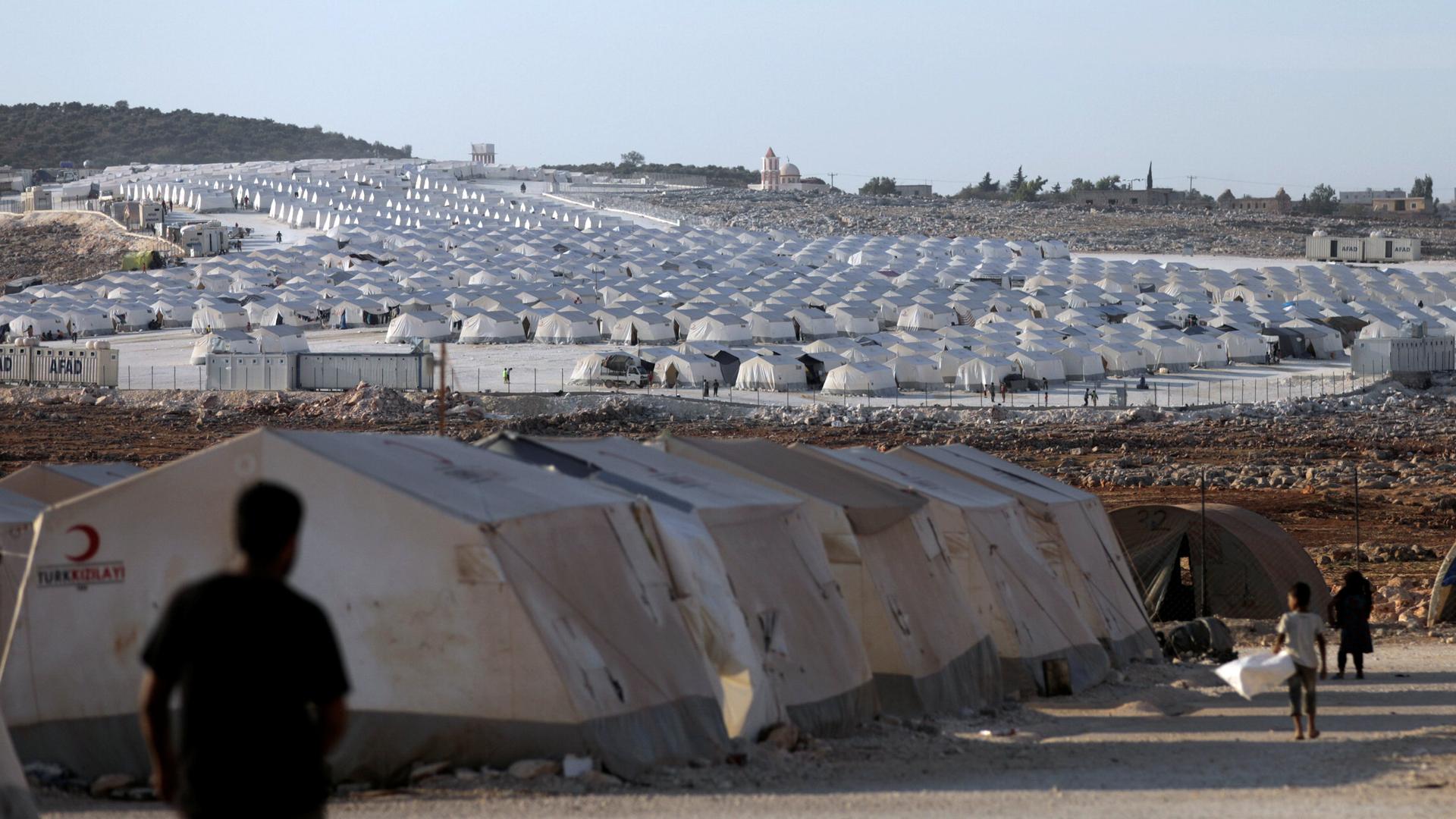Turkish President Recep Tayyip Erdogan’s diplomacy to halt the offensive on Syria’s Idlib province has prevented bloodshed and another humanitarian crisis in the country.
Turkey and Russia on Monday agreed to turn Syria’s northwestern Idlib province into a demilitarised zone, following a meeting between Erdogan and Russian President Vladimir Putin in Sochi, Russia.
The United Nations, the European Union and President Erdogan had earlier warned that any regime offensive in Idlib would result in a humanitarian catastrophe.
Already hosting 3.5 million Syrians—the world’s biggest refugee population—Turkey has said it cannot absorb more victims of the war and has accused the West of refusing to face the consequences of regime leader Bashar al Assad’s reconquest of Syria.
The Turkey-Russia deal suspended, or ended, Moscow’s political and military support for Assad to launch an offensive on Idlib.
The previous meeting in Tehran between Turkey, Russia and Iran did not lead to a deal or a ceasefire. Iran, was not at the table this time around.
“Turkey has long been negotiating with Russia over the situation in Idlib, as it is Moscow that conducts air strikes on behalf of the Syrian regime,” a Turkish official told TRT World. The official was among Ankara’s delegation in Russia, and did not want to be named since he is not authorised to talk to the media.
He added that “Russia has been more involved in Idlib as compared to Iran, and hence Idlib was the focus point during the meeting between Turkish President Erdogan and his Russian counterpart Vladimir Putin.”
“Additionally, Shia militias in the villages of Foua and Kefraya were evacuated, which is another reason why Iran lost its interest in the region,” the official added.
Foua and Kefraya had been under siege for years by rebels in Idlib province, the last major rebel-held stronghold in Syria.
The current deal also aims to isolate “radical” elements from “moderate rebels” in Idlib.
The distinction helps ensure that the regime cannot launch an offensive on the pretext of Hayat Tahrir al Sham’s (HTS)—a former Al Qaeda affiliate—presence in the area, effectively blocking its return to northwestern Syria in the foreseeable future.
Backed by Russian air power, Assad has in recent years taken back one rebel enclave after another, including three de-escalation zones established on Syria’s southern border with Jordan and to the east and north of Damascus.
The Assad regime, during the past few months, had been mobilising its forces to stage an assault on the last remaining of the four de-escalation zones that were established under a deal between Turkey, Russia and Iran last year.
The deal also raises hopes of finding a political solution to the conflict in Syria and allowing for the continuation of humanitarian access to the region so that civilians receive adequate shelter, food and medical care.
Putin on Monday said Russia and Turkey had decided to establish a demilitarised area, which will extend 15-20 kilometres deep into Idlib.
The two leaders announced that Russia and Turkey would restore transit routes between Syria’s Aleppo, Latakia and Hama. And Turkey would strengthen observation points in the Idlib de-escalation zone.
“The borders of Idlib will be protected under the memorandum of understanding signed in Sochi. There would be no change in the status of Idlib,” Turkey’s Foreign Minister Mevlut Cavusoglu said at a news conference in the capital Ankara on Tuesday.
Cavusoglu said the arrangement ensures the continuity of Syria’s moderate opposition. He said it would allow civilians and Turkey-backed anti-regime rebels to remain in the demilitarised zone and “retain light arms.”
He added that heavy weapons would be removed from the demilitarised zone in Idlib by October 15.
“Civilians will stay, only terrorist groups will be removed.”
Cavusoglu added the region would be cleared off from “radicals” and ceasefire would be ensured, meaning groups such as the Jabhat Fateh al Sham are to withdraw from the area.
Without the agreement, “there would have been no opposition left,” Cavusoglu said, calling it crucial for a lasting political solution.
Cavusoglu also said Turkey would need to dispatch more troops to patrol the area, along with Russia, while retaining its 12 observation posts.
Iran welcomed the deal hailing it as an example of “responsible diplomacy” that had averted a war in Idlib “with a firm commitment to fight extremist terror.”
Although Iran and Turkey have backed opposing sides in the Syrian war since the beginning, the two countries have cooperated under the Astana talks, which started at the end of 2016, along with Russia, to help bring an end to the war.
An estimated three million people live in Idlib – around half of whom are people displaced from other parts of the country. The UN has described it as a “dumping ground” for people evacuated and displaced from elsewhere in Syria during the seven-year war.
The conflict in Syria began in 2011 when the Assad regime cracked down on demonstrators with unexpected ferocity. Since then, the civil war has claimed more than 400,000 lives and displaced millions.










Discussion about this post